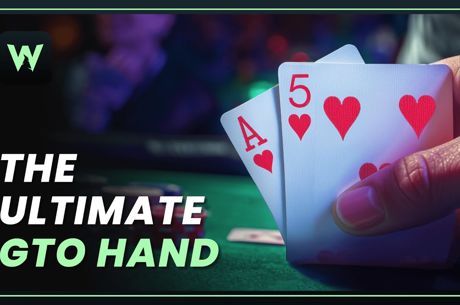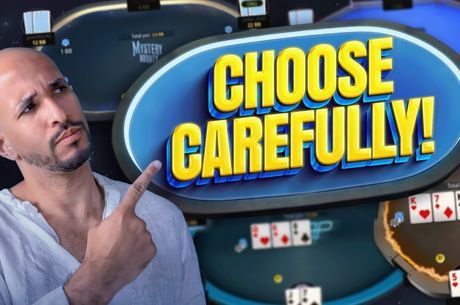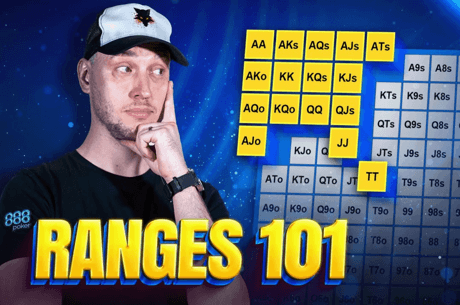Three Times When You Don't Have to Fold

Bad players become good players, initially, by learning to fold bad starting hands. They learn to be selective. Similarly, when they're starting out, rookies learn to be disciplined on the flop, getting rid of hands that don't improve or continue to be dominant.
Eventually they additionally learn to recognize the importance of position, chiefly by playing stronger hands in early position than they play in latter position. They also learn to respect the betting action of their opponents by folding borderline hands in the face of demonstrated strength by their opponents.
And so, simply put, many players early in their poker education often will adopt a "tight is right" and "fit or fold" mentality, generally staying out of trouble and perhaps even managing to make a modest profit, particularly if the games they play are populated by relatively one-dimensional or otherwise weak opponents.
But this squeaky tight form of play can be learned too well and applied too strictly, especially as players encounter opponents with even a slightly increased level of sophistication. Indeed, in all but the loosest home games, a player who folds too frequently and too consistently will become the favorite opponent of many — easy to read, and simple to exploit.
It is with this type of player in mind that I write this companion piece (as one reader asked for) to my most recent column "You Don't Have to Call: Eight Examples of Calls You Don't Have to Make." It's important to recognize that there will be times when your instinct is to fold, but that you don't in fact "have" to do so.
Here are three examples of those times when you don't have to fold (but might think that you do).
1. When there is a raise in early position preflop and you have a substandard hand in late position
In a $1/$2 no-limit hold'em cash game you're in the cutoff with AxXx. A player in early position raises to $12. Everyone folds to you. You might consider this an automatic fold. It isn't.
The key is in considering the type of player who made the raise and how effectively deep that player is. If he's relatively straightforward and fairly deep (has at least 75 big blinds), a call or a raise may make sense. Think about whether there is a line of play that might allow you to take the pot away from this player. If you call, perhaps you can steal the pot by raising when he bets the flop, whether or not an ace hits.
Many players are conventional enough that they will assume you must have hit a monster if you make such a move, especially if you continue with another bet on the turn if they call your raise and check to you. If they have a deep stack to protect and lack the sophistication to realize that their opponent may just be making a move, or if they are raising preflop with just two big cards and then continuation bet the flop, your raise will almost surely win you the hand.
Similarly, certain overly tight opponents, even if they bet AxXx and hit an ace on the flop, will be afraid of you having a set or two pair when you raise and may well fold. (Also, with these cards in particular you could hit two pair or a straight and win a ton off of a big ace.)
Of course, I'm not suggesting that you make this move all the time, or even consistently. But you must realize that you don't have to fold in situations like this. There will be times, based on the circumstances, when you should call or raise.
2. When you are on the river, have missed your draw, and your opponent bets into you
Sure, most of the time this is a fold. But again, you don't have to fold. Sometimes you can raise.
Let's say you started with A♥J♥ and had an effective stack of $300 in this $1/$2 game. Your opponent, a straightforward player in mid-position, open-raised to $10. You called from late position.
The flop came K♦7♥6♥. Your opponent bet $15 and you called with your flush draw (and one overcard to the board). The turn was the 2♦. Your opponent bet $25, and you called once more. The river was the 5♦, making the final board K♦7♥6♥2♦5♦, and your opponent bet $35.
You missed your flush. You have no pair — just ace-high. Your obvious move is to fold. But if you have a tight and conventional image you might try a raise, to $100 or so. Your opponent may conclude from your raise that you hit a straight or flush on the river, and may then lay down his hand. You only need to succeed 40 percent of the time for it to show a profit.
Again, it's not the move you want to make all the time, but think of the type of player you're up against and don't completely rule it out without considering it first.
3. There's a shove and a call preflop and you don't have aces or kings
You're playing a $300 stack. An early position player raises to $12, and another player shoves for $80. The next player, with a stack of $300, calls the $80. It folds to you in the hijack seat with QxQx.
Sure seems like someone has you dominated with AxAx or KxKx and that a fold is in order, even with pocket queens. But wait a second. Before you automatically fold, consider what kind of players are involved.
If the shover is a bit wild, or desperate, or just generally not very good, with his relative short stack his range might be nothing more than a big ace or a pair of jacks or maybe even any two big cards. And the caller, unless he's very sophisticated, is unlikely to have aces or kings. Otherwise he probably would have raised, no?
Your best play here may be to raise. True, maybe it's a trap for you, but maybe the caller has a range that includes a big ace, jacks, or even smaller pairs. In any event, though you may decide that folding makes the most sense, it should never be automatic, even though for some players it is.
Conclusion
The takeaway from these three admittedly contrived situations, and many more that you could invent, is that while some players automatically fold in certain situations, with some thought there are occasionally good reasons not to take the seemingly "automatic" action.
That's one key to successful play, especially as you face increasingly sophisticated opponents — be thoughtful before you act.
Ashley Adams has been playing poker for 50 years and writing about it since 2000. He is the author of hundreds of articles and two books, Winning 7-Card Stud (Kensington 2003) and Winning No-Limit Hold'em (Lighthouse 2012). He is also the host of poker radio show House of Cards. See for broadcast times, stations, and podcasts.









